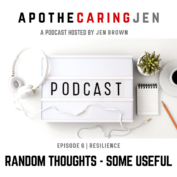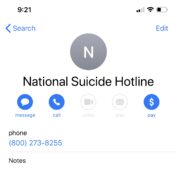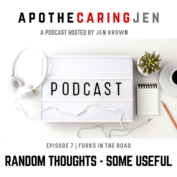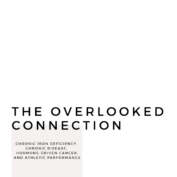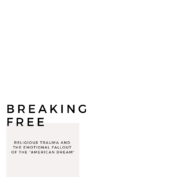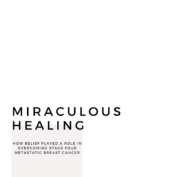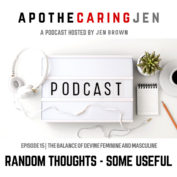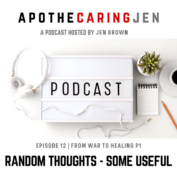Let’s face it: thinking about what happens after we’re gone isn’t anyone’s favorite topic. But here’s the truth—getting your affairs in order is one of the most empowering, loving things you can do for yourself and your family. It’s not about expecting the worst; it’s about creating a legacy and living with intention, knowing that everything you’ve worked for will continue to bless those you care about most.
This isn’t just for the rich, or the elderly, or someone with a sprawling estate. Whether you’re a 21-year-old with a car and a savings account, or a parent with a home and young children, having a plan in place is about peace of mind—for you and those you love.
The Basics: Start with a Will
A will is the cornerstone of your estate plan. It outlines:
- Who inherits your belongings—this can be your children, spouse, a friend, or even a charity.
- Who manages your estate—the executor, responsible for distributing your assets and ensuring your wishes are carried out.
- Who cares for your dependents—a critical piece if you have minor children.
Even if all you own is a car and a few savings accounts, a simple will is essential. It’s better than leaving everything up to state probate courts, which could take years and leave your family in financial limbo. For more complex estates, a will alone might not be enough—that’s where trusts come in.
Why a Trust May Be Right for You
If you own property or significant assets, a trust can be a game-changer. Unlike a will, which goes through probate (a potentially costly and time-consuming court process), a trust allows you to transfer your assets privately, quickly, and often without taxes.
What is a Trust?
A trust is a legal entity that holds your assets on behalf of your beneficiaries. You (the grantor) decide who manages the trust (the trustee) and who receives the benefits (the beneficiaries).
Types of Trusts to Consider:
- Revocable Living Trust
- Flexible: You can change or revoke it during your lifetime.
- Avoids probate: Upon your death, assets in the trust pass directly to your beneficiaries without court involvement.
- Ideal for: Those who want to maintain control of their assets while simplifying the transfer process.
- Irrevocable Trust
- Rigid: Once established, you can’t modify or revoke it.
- Tax benefits: Assets placed in an irrevocable trust are no longer considered part of your estate, which can reduce estate taxes.
- Ideal for: High-net-worth individuals looking to minimize taxes or protect assets from creditors.
Why Put Your Home in a Trust?
Your home is often your most valuable asset, and placing it in a trust can:
- Avoid Probate: Your home transfers directly to your heirs without delays or legal fees.
- Reduce Estate Taxes: An irrevocable trust can help remove your home’s value from your taxable estate.
- Provide Control: You can specify conditions for the inheritance, such as age requirements for children.
- Protect from Creditors: In certain trusts, your home is shielded from creditors or lawsuits.
How to Put Your Home in a Trust
- Create the Trust: Work with an attorney to draft the trust document, specifying the terms and beneficiaries.
- Transfer the Deed: Change the title of your home from your name to the name of the trust. This process varies by state, so consult a professional to ensure compliance.
- Inform Your Lender: If you have a mortgage, notify your lender. Most allow transfers to a trust without issue, but some may require additional documentation.
- Keep Records Updated: Ensure your homeowner’s insurance and other records reflect the trust as the owner.
Structuring Finances for Maximum Efficiency
Financial planning is about more than writing a will or creating a trust. It’s about ensuring that your assets work in harmony to support your loved ones and minimize tax liabilities.
Key Steps for Financial Organization
- List Your Assets
- Bank accounts, retirement funds, investment portfolios, real estate, vehicles, and valuables.
- Note how each asset is titled (e.g., jointly owned, sole ownership) and whether it has a beneficiary designation.
- Name Beneficiaries
- For life insurance policies, retirement accounts, and payable-on-death (POD) bank accounts, ensure beneficiaries are named and up to date.
- These assets bypass probate and transfer directly to your heirs.
- Plan for Debts
- Identify any outstanding loans, credit cards, or obligations.
- Make a plan to pay off debts or designate assets that can cover them.
- Establish Power of Attorney
- A durable power of attorney allows someone you trust to manage your finances if you’re incapacitated.
- A healthcare power of attorney ensures your medical wishes are respected.
- Consolidate Accounts
- Simplify your finances by consolidating accounts where possible. This makes it easier for your executor and reduces the risk of forgotten assets.
- Set Up a Financial Legacy Plan
- Consider creating an education fund for children or grandchildren through a 529 plan.
- If you want to leave money to a charity, look into donor-advised funds or charitable trusts.
Downsizing Without Losing Your Peace
For many retirees, downsizing becomes a necessary step when a beloved home becomes too much to maintain. But downsizing doesn’t have to mean losing everything you love about your current lifestyle. Here are some ideas to make the transition easier and more rewarding:
- Consider a Smaller Home in a Similar Setting
If you’ve loved living in the country but find it overwhelming, look for a smaller property nearby. This allows you to stay connected to your community while reducing upkeep. - Explore Active Adult Communities
These neighborhoods often provide low-maintenance housing with amenities like walking trails, fitness centers, and social activities. It’s a great way to stay active and make new connections. - Rent Before You Buy
If you’re unsure about leaving your current home, consider renting in a new area first. This gives you a chance to test out the lifestyle without committing fully. - Keep Sentimental Items
Downsizing doesn’t mean leaving your memories behind. Keep a few cherished items and consider digitizing photos or creating memory books for family members. - Invest in Experiences
Downsizing can free up finances for the things that truly matter, like travel, hobbies, or spending more time with loved ones. Shift your focus from maintaining things to creating memories.
Keep It All Organized
Once you’ve created a will, established a trust, and structured your finances, keep everything organized:
- Use a fireproof safe for documents like your will, trust, deeds, and insurance policies.
- Maintain a digital file with account numbers, passwords, and instructions for accessing online accounts.
- Inform a trusted family member or friend where to find these documents.
Review Regularly
Life changes—marriage, divorce, children, buying or selling property—require updates to your estate plan. Make it a habit to review your documents every few years to ensure they reflect your current wishes.
The Gift of Preparedness
Getting your affairs in order isn’t about expecting the worst—it’s about being prepared for the unexpected. It’s one of the greatest gifts you can give your loved ones, sparing them unnecessary stress, legal battles, and financial hardship.
Take the first step today. Even if it’s just jotting down who gets what, you’re already miles ahead of most people. If you’ve got questions or feel overwhelmed, I’m here to help! Let’s tackle this together—because your peace of mind and your legacy are worth it.




